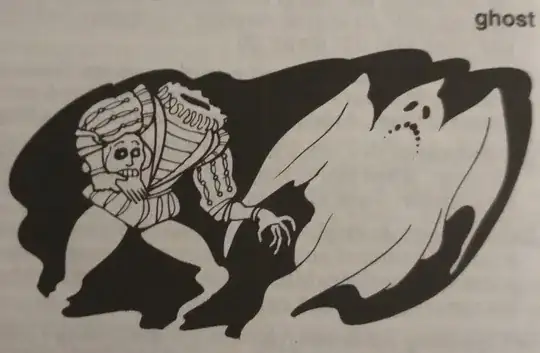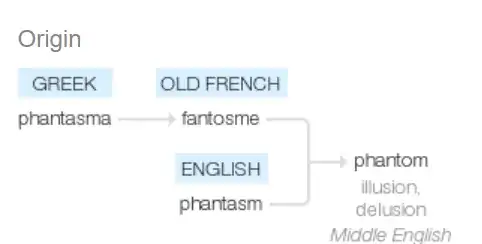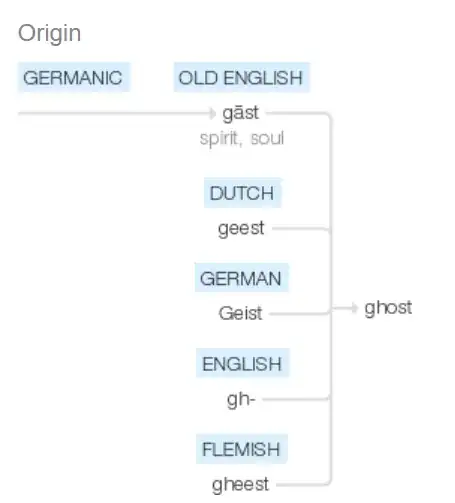These are compared as such: a phantom is a ghost, but a ghost is not a phantom. The meaning of that is every phantom is a ghost, but phantoms have characteristics that prevents every ghost from being a phantom. What are those differences? I have never known.
3 Answers
Some meaning of this two words are same, and some are not. In other words these two words are synonyms in some cases. See Longman Dictionary Of Language And Culture:
phan‧tom /ˈfæntəm/ noun
- a shadowy likeness of a dead person that seems to appear on earth; GHOST.
- something that exists only in one's imagination.
ghost /ɡəʊst/ noun
the spirit of a dead person that some people think they can feel or see in a place
also ghost‧writ‧er ...
give up the ghost ...
the ghost of a ...
the ghost of Christmas past ...
Stereotypes of ghosts:

phantom has its roots in Greek and came to Middle English through Old French

ghost comes from proto-Germanic and survives in most Germanic languages. In Flemish, for example, we have no commonly used equivalent to phantom (there's one in the dictionary but nobody uses it)
Etymologically, these represent two very different concepts. The Greek φάντασμα originally derives from φᾰντᾰ́ζω (phantázō, “make visible”) + -μᾰ (-ma).
gast shares the same root as the Old English verb gæstan "to frighten". It's the West Germanic word for "supernatural being." In Christian writing in Old English it is used to render Latin spiritus. Sense of "disembodied spirit of a dead person," especially imagined as wandering among the living or haunting them, is attested from late 14c. and returns the word toward its likely prehistoric sense.
- 5,418
- 7
- 17
To me there is a difference. In a court case you might say "your case is relying upon phantoms" but not "your evidence is full of ghosts". So a phantom to me starts off as being corporeal material and then becomes hidden; I could walk down the street in camouflage gear and be alive, human and a phantom. But a ghost leands itself more to starting off as dead and then coming back to earth to "haunt" places or people. These diferences are subtle. But they are there.
- 149
- 6
